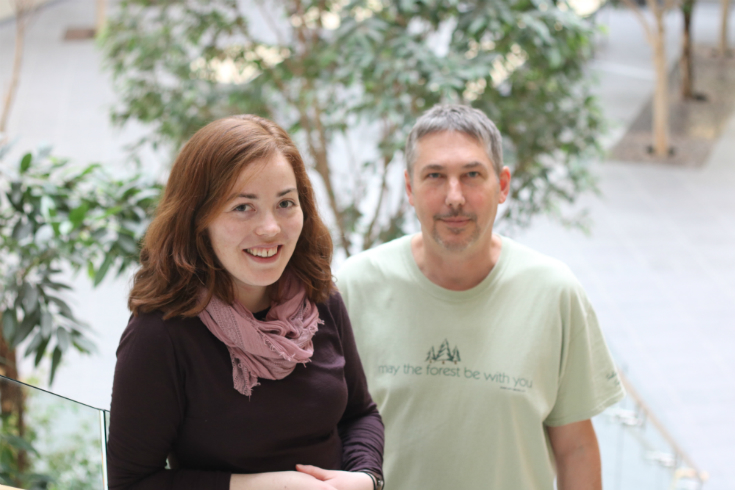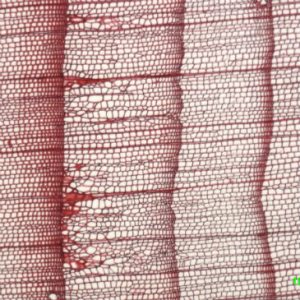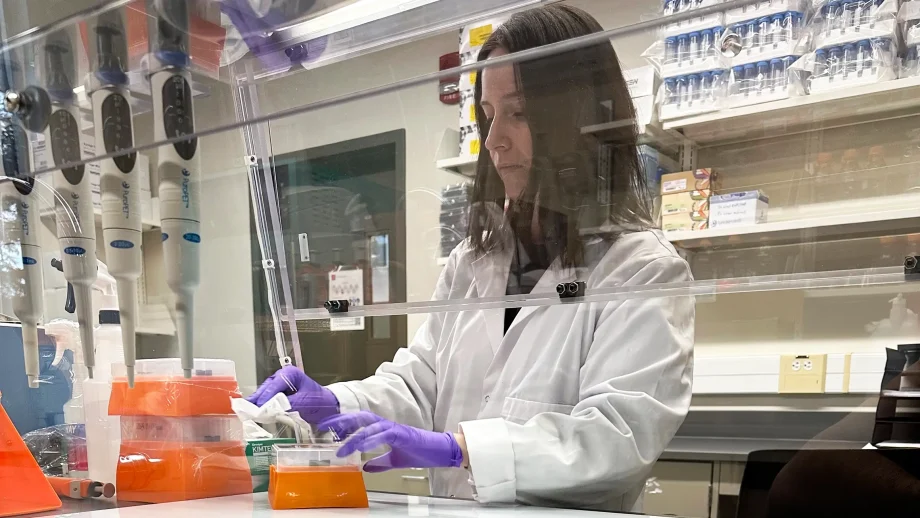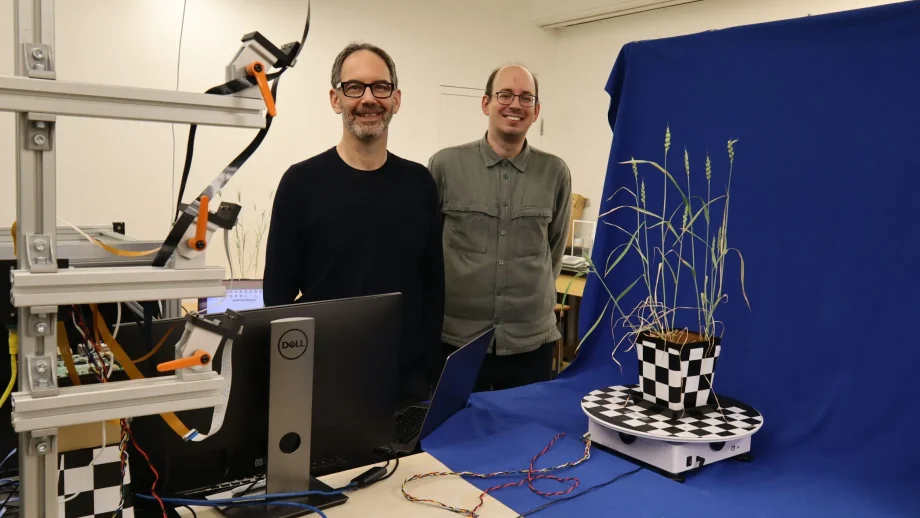
Johanna Robson + Dr. Jacques Tardif, ©UWinnipeg
UWinnipeg’s Dr. Jacques Tardif (biology, environmental studies and sciences) was awarded the Chinese Academy of Sciences (CAS) President’s International Fellowship (PIFI) and will be spending 60 days in Guangzhou City, China to research extreme climatic events in temperate mixed forests in central China. Tardif will be joined by UWinnipeg graduate student Johanna Robson (MSc in Bioscience, Technology and Public Policy).
The research project will involve collaboration between UWinnipeg’s Dendroecology Laboratory (UWDEL) and Dr. Jianguo Huang from the South China Botanical Garden of the Chinese Academy of Sciences.
Tardif and Huang first met in Montreal more than a decade ago when Tardif supervised Huang’s PhD. “Since then, we have continued to collaborate and this time he will be the real ‘boss,'” Tardif said. “We will be working at the South China Botanical Garden of the Chinese Academy of Sciences, a very touristic destination located in Guangzhou. Living there for two months in a city with an estimated population of over 13 million, will be a cultural experience.”

1969 frost ring in spruce, photo supplied
The research will focus on tree-ring anomalies indicative of extreme climate events. These will include, among others, frost rings and false rings. For example, frost rings are indicative of early springs cambium reactivation followed by subfreezing temperatures.
False rings, in contrast, have been associated with growing season drought. Both late spring frosts and droughts are a concern in agriculture and both have been predicted to increase as a consequence of warmer climate. The research will take place in central China in the Shanxi Province and Henan Province.
Two tree species (Pinus massoniana Lamb and Pinus taiwanensis Hayata) will be sampled along elevation gradients. This study will evaluate the potential of using tree-ring anomalies in mountain environment and also determine their utility for long-term climate reconstruction.
Robson was awarded a Mitacs Globalink scholarship of $5,000 to accompany Tardif on this research trip to China*.
“Receiving the Mitacs award is a great way to strengthen international research collaborations and provides me with both new cultural understanding and unique research experience that can hopefully lead towards a future PhD,” shared Robson. “I am most excited about having the opportunity to travel to China to study forest ecology. I will really enjoy the forest environment in the central mountain region of China. That is something new and unknown to me.”
Tardif and Robson will be leaving for China on May 10, 2017.
Tardif has been studying the boreal forests of Manitoba since 1998. Tardif is a forest historian who uses tree rings to better understand tree growth, forest disturbances and climate interactions in central Canada. Tardif also does research at UWinnipeg’s Centre for Forest Interdisciplinary Research (C-FIR) in addition to being a professor of biology and environmental studies and sciences, as well as a former Canada Research Chair.
Mitacs Globalink
Mitacs is a national, not-for-profit organization that has designed and delivered research and training programs in Canada for 15 years. Working with 60 universities, thousands of companies, and both federal and provincial governments, they build partnerships that support industrial and social innovation in Canada.
The Chinese Academy of Sciences (CAS)
CAS offers a package of international fellowships, collectively called the “CAS President’s International Fellowship Initiative (PIFI),” to support highly-qualified international scientists and postgraduate students to work and study at CAS institutions and strengthen their scientific collaboration with CAS researchers. The PIFI program is available for four categories of international researchers and students: distinguished scientists, visiting scientists, postdoctoral researchers and international PhD students.
*any extra costs will be covered by Tardif’s Natural Sciences and Engineering Research Council of Canada (NSERC) grant.




